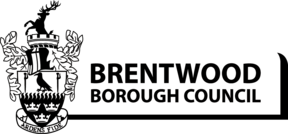What is universal credit?
Universal Credit is a single payment for people who are looking for work or on a low income.
Universal Credit has replaced the following benefits:
- Housing Benefit
- Income-based Jobseekers Allowance
- Income-related Employment and Support Allowance
- Income Support
- Child Tax Credit
- Working Tax Credit
Universal Credit is calculated as a basic allowance for a single person or a couple plus additional amounts for:
- each child or young person you're responsible for (with extra amounts if they are disabled)
- child care costs
- if you have a 'limited capability for work' - This means that you're unable to work due to an illness or a disability.
- if you have regular and substantial caring responsibilities for a severely disabled person
- housing costs (mortgage interest payments and rent payments if you're unemployed)
Universal Credit is paid by the Department for Work and Pensions, and unlike the benefits it replaces, it's paid monthly in arrears.
Universal Credit has been designed so that it's payable whether you're working or not. If you're on a low income and are moving in and out of work, Universal Credit will remain in payment and be adjusted to suit your new financial circumstances. As your income increases your Universal Credit amount decreases until you no longer need it.
You will get the full amount possible if your household has no other income and has less than £6000 savings. There will be no award if your savings are over £16,000.
Universal Credit is paid once a month and paid direct into a bank account. Your claim and your account will be accessed and managed online.
What happens if I am already receiving Housing Benefit?
You don't need to do anything if you're already receiving any of the six benefits listed above, and you will be informed when you need to make a claim for Universal Credit.
Should I claim housing benefit or universal credit?
Depending on your circumstances you may not be able to claim Housing Benefit, and will need to make a claim for Universal Credit.
You will be still able to claim Housing Benefit if:
- you are a Pensioner - Universal Credit is a working age benefit and you will be able to claim Housing Benefit if you have reached state pension age
- you're living in supported accommodation - If you rent from a charity or housing association and receive care or support as part of your rent then you may be able to claim Housing Benefit. Speak to your landlord for more advice.
Council Tax Support
If you are liable to pay Council Tax then you will still be able to claim Local Council Tax Support from the Council using our online form.
How to claim for universal credit
Find out whether you're eligible and how to claim for Universal Credit. This will be managed online.
If you don’t have a computer at home you can use the computers at the Job Centre or your local library. If you need more help you can get face to face or telephone advice from staff at the Job Centre.
If you have any questions orYou have any questions your circumstances change and you're already receiving Universal Credit, you can call the Universal Credit Helpline on 0800 328 5644.
